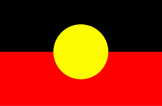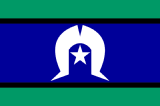The cost of education is high no matter what form of education you are hoping to offer a child or young person in your care. For many carers, the Department of Families, Fairness & Housing (DFFH) or your foster care agency may be able to assist with costs associated with putting children through school. Other government resources and support services are provided below.
Early Start Kindergarten (ESK) provides eligible children with 15 hours of free or low-cost kindergarten each week led by a qualified Victorian Institute of Teaching (VIT) registered teacher.
All children in Out-of-Home Care (foster care, permanent care, or kinship care), who are three years old by 30th April in the year they start kindergarten are eligible for Early Start Kindergarten.
The Department of Education administers a range of scholarships on behalf of various trusts who fund the scholarships.
These school scholarships are for students who are studying in Victorian schools (Australia) and who are citizens or permanent residents of Australia.
Applications for a range of scholarships open 3 October 2024 and close 11.59pm on 1 February 2025. Scholarships are available to students who complete Years 4 to 12 in 2024.
Students must apply for a scholarship for the year level they undertook in 2024, e.g. a student in Year 8 in 2024 would apply for a Year 8 scholarship.
These school scholarships are for students who are studying in Victorian schools (Australia) and who are citizens or permanent residents of Australia.
The conveyance allowance is a form of financial assistance to assist eligible families in rural and regional Victoria with the cost of transporting their children to their nearest appropriate school/campus or attend an eligible specialist school. This policy applies to both government and non-government schools.
Eligible children may need to travel by public transport or by private car, motorbike, bicycle or bus, and their nearest school is not serviced by a free school bus provided under the School Bus Program.
Schools are responsible for the day-to-day administration of the conveyance allowance and communicating to parents/carers the travel options that are available for students in the area. Schools administer applications for the conveyance allowance.
Students attending a specialist school may be eligible for travel assistance through the provision of buses, taxis, conveyance allowances and other transport solutions.
To qualify for assistance children must:
meet the criteria for the Program for Students with Disabilities
live in the designated transport area of their specialist school and
be enrolled at the school for three or more days each week.
Complete the application form and give it to your child’s school. You can also ask the school to complete the form for you.
Further information is available at Getting to and from school for students with disability | Victorian Government (www.vic.gov.au)
The School Bus Program is an extensive school bus network that provides travel at no cost to eligible students attending government and non-government schools and living in rural and regional Victoria. Students deemed ineligible to travel at no cost may access a school bus service upon payment of a fare. Application forms for the School Bus Program are available at your child’s school.
SSR provides government school students with new uniforms, footwear, and educational resources, including learning devices. There is an online store available on the website. State Schools' Relief
Other support programs managed by the SSR are:
The Glasses for Kids program (Glasses for Kids by State Schools' Relief)
Graphing Calculator program (Graphing calculator program - State Schools' Relief),
iPads for Non Verbal Students program (iPad program - State Schools' Relief)
The Travel Pass program Travel Pass program - State Schools' Relief
Carers can contact the Services Australia Grandparent, Foster, and Kinship Carer Adviser on 1800 245 965 for further information and advice. Grandparent, Foster, and Kinship Carer Advisers - Services Australia
Young people may be eligible for Youth Allowance if they are aged:
18 to 24 and studying full time
16 to 17, studying full time and either independent or needing to live away from home to study
16 to 17, studying full time and have completed year 12 or equivalent
16 to 24 and doing a full time Australian Apprenticeship
Young people in state care must provide proof such as a court order or letter from their state or territory department to show that they are in the guardianship, care or custody of a court or government department, or that a current court, minister, or department direction has placed a young person in the guardianship, care, or custody of someone other than their parent.
For further information visit your local Centrelink office or call Centrelink on 13 24 90
Youth Allowance for students and Australian Apprentices - Services Australia
Students can usually first get ABSTUDY when they start high school. Primary school students may also be eligible if they’re aged 14 years or older on 1st January in the year of study.
Depending on a student’s circumstances, ABSTUDY can help with school fees, boarding fees, living costs, travel costs, buying school materials.
This assistance may be available for school age students who live in an isolated area, or school age children with a disability or special health need that cannot be met at a local state school.
The student must normally be enrolled in approved full-time primary or secondary study. A school aged student who does not have access to a state secondary school can be enrolled in
approved full-time tertiary vocational education and training, for example a TAFE course, instead.
Assistance for Isolated Children Scheme - Services Australia
LOOKOUT Education Support Centres are designed to boost the capability of early childhood services, schools, carers, child protection practitioners and out-of-home care services to improve educational outcomes for children and young people living in out-of-home care.
Carers should discuss accessing LOOKOUT supports with their agency worker and Care Team in the first instance.
The Association for Children with Disabilities (ACD) offers comprehensive information and support to education to care givers of children and young people with disabilities.


